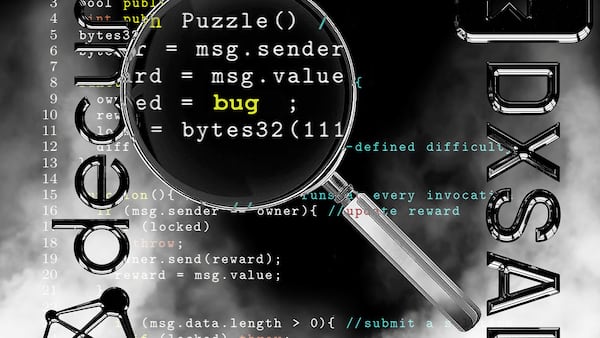- Coin Center and Cravath lawyers say FinCEN guidance may be a loophole Tornado Cash founders can use.
- But some lawyers caution the stratagem may not be enough. "FinCEN guidance is just that — guidance," one said.
When US prosecutors last month accused two Tornado Cash co-founders of money laundering, sanctions evasion, and running an unlicensed money-transmitting business, a storied law firm and a crypto think tank volunteered a novel defence.
The strategy, detailed in a blog post and law review-style paper, has been hailed by crypto attorneys and inspired hope in an industry that sees the charges as a declaration of war against code writing and financial privacy.
But doubts remain.
Transaction history
“It’s not like they’re doing anything necessarily legally improper,” Bill Hughes, director of global regulators matters at ConsenSys and a former associate deputy attorney general at the Department of Justice, said of the prosecutors. “But it’s going to be something that certainly the defendants are going to be harping on.”
Blockchains are public ledgers, and the entire transaction history of each wallet can be viewed by anyone, anywhere. Tornado Cash is one of several protocols built to address that lack of privacy, which has long been considered an impediment to crypto’s adoption.
NOW READ: She lost $80,000 in a crypto romance scam. Now she’s fighting back
The protocol obscures the flow of crypto on the blockchain, but became popular with cyber criminals, including the Lazarus Group, hackers affiliated with North Korea and the development of its nuclear missile program.
Tornado Cash was sanctioned by the US Department of Treasury in August 2022. Last month, federal prosecutors indicted co-founders Roman Storm, 34, and Roman Semenov, 35.
“Roman Storm and Roman Semenov allegedly operated Tornado Cash and knowingly facilitated this money laundering,” Damian Williams, US Attorney for the Southern District of New York, said in a statement. “While publicly claiming to offer a technically sophisticated privacy service, Storm and Semenov in fact knew that they were helping hackers and fraudsters conceal the fruits of their crimes.”
Released on bond
Storm, who had been living in Auburn, Washington, was arrested and released on a $2 million bond, according to Inner City Press. On Wednesday, he pleaded not guilty in federal court in the Southern District of New York.
Semenov, a Russian national, remains at large. A third co-founder, Alexey Pertsev, was arrested in the Netherlands in 2022, where he awaits trial on house arrest. Pertsev faces a hearing on September 13 ahead of his trial.
‘An anonymizing software provider is not a money transmitter.’
— FinCEN guidance
Crypto think tank Coin Center was the first to highlight the potential weakness in the prosecution’s case in a blog post August 23. Soon afterward, a pair of partners at Cravath, Swaine and Moore, a law firm based in New York that has represented the likes of JPMorgan Chase and Robinhood, weighed in as well.
Prosecutors claim the co-founders, as well as “others involved in the Tornado Cash service … engaged in the business of transferring funds on behalf of the public.”
This should make Tornado Cash a money transmitting business required to register with the Department of Treasury’s Financial Crimes Enforcement Network, or FinCEN, and follow Bank Secrecy Act requirements that it screen users and monitor transactions for illicit behaviour.
NOW READ: Tornado Cash founders agonised over KYC almost a year before sanctions, prosecutors say
And yet guidance issued by FinCEN appears to establish that Tornado Cash is not a money transmitter, both Coin Center and Cravath’s lawyers say.
As a result, Tornado Cash shouldn’t be subject to the Bank Secrecy Act, nor, in turn, its requirement that Tornado Cash screen potential users and monitor their transactions for illicit behaviour.
“An anonymizing software provider is not a money transmitter,” FinCEN wrote in a 2019 guide to cryptocurrency.
Crypto wallets
Peter Van Valkenburgh, Coin Center Research director, highlighted the apparent contradiction in the government’s case.
“The indictment provides various factual allegations describing the activities the defendants performed, but all of those facts point to the defendants fitting squarely within FinCEN’s guidance on anonymizing software providers rather than them being money transmitters,” Van Valkenburgh wrote in an August 23 blog post.
NOW READ: Asian crime gangs force hundreds of thousands to perpetrate crypto romance scams
Cravath partners Benjamin Gruenstein and Evan Norris made the same argument, citing a different section of FinCEN guidance pertaining to crypto wallets.
“If the government is going to be bound by FinCEN guidance, it remains to be seen whether and how it will be able to establish that Tornado Cash exercised both necessary and sufficient control over funds, and thus that the founders conspired to operate it as an unlicensed money transmitting business,” they wrote in an article published by the International Academy of Financial Crime Litigators on September 1.
Got the law wrong
Crypto attorneys took to social media to hail the argument.
“DOJ’s Tornado Cash indictment got the law wrong,” Jake Chervinsky, head of policy at crypto lobbyist Blockchain Association, wrote on the website formerly known as Twitter.
Independent crypto attorney Erich Dylus told DL News the prosecutors’ “ignored” FinCEN in bringing charges against the co-founders.
That the co-founders ran an unlicensed money transmitting business “is at odds with the technical facts, and hopefully defence counsel picks it apart,” he added.
Hughes, of ConsenSys, agrees the prosecutors likely haven’t done enough to prove the charge.
“There is going to be … what I view as a strong legal argument on behalf of the defendants that what constitutes money transmission never took place,” he said. “The indictment itself raises serious questions as to whether they have enough [evidence].”
Force of law
But the FINCEN argument isn’t a sure winner, of course.
“FinCEN guidance is just that — guidance,” Hughes told DL News. “It doesn’t constrain DOJ from taking a different view as to what, one, the [Bank Secrecy Act] says, and two, what any FinCEN actual promulgated regulations provide.”
The Cravath lawyers admit as much.
The guidance “is not binding on FinCEN or the Department of Justice, and it does not have the force of law,” they write. “Yet it remains the best resource to consult from the agency that promulgated the rules defining a money transmitter to understand, from the agency’s perspective, what those rules mean in the context of crypto assets.”
‘In commenting & figuring out what to do about all this, we must analyse/rebut the govt’s strongest possible case.’
— Gabriel Shapiro
Gabriel Shapiro, general counsel at Delphi Labs, took to Twitter to argue that any defence that cites FinCEN was “cherry-picking” from the regulator’s guidance.
A section on “decentralised applications” is far less favourable to the defence, Shapiro argues.
“When DApps perform money transmission, the definition of money transmitter will apply to the DApp, the owners/operators of the DApp, or both,” the guidance reads.
Shapiro said the government could still lose the case.
“But in commenting & figuring out what to do about all this, we must analyse/rebut the govt’s strongest possible case,” he wrote, “not a watered-down strawman version of their case.”
Whither DeFi?
Whatever the merits of the government’s argument, the indictment could spell trouble for other DeFi founders, according to Dylus.
“Anyone doing something resembling running a DeFi user interface as a business without restricting Americans or sanctioned persons is taking on some risk,” he said. “It’s a huge loss for privacy and [peer-to-peer] tech innovation in the US.”
DeFi founders can rest easy as long as their protocols don’t become popular with people and businesses on the US’ list of sanctioned entities, Carl Volz, a Chicago-based attorney who advises crypto companies, said.
“I think the thing with Tornado Cash was the national security issue,” he said. “[That] was really the kick in the pants and made the government act, and you don’t necessarily see that with with Uniswap or many other DEXes.””
NOW READ: Coinbase-funded lawsuit against Tornado Cash sanctions was ‘nigh impossible to win’
Prosecutors likely recognise their case is at odds with FinCEN guidance, according to Hughes.
“But they’re going for it nonetheless,” he said. “And I think it’s because to them and to this administration, this is a very important case.”
But that shouldn’t necessarily keep DeFi developers awake at night.
“There’s no indication now the Tornado Cash indictment is emblematic of a wave of things to come,” he said. “It’s alarming, but this doesn’t signal an all-out war of the US criminal justice system on blockchain software development writ large.”
Have a tip about crypto legal matters? Contact the author at aleks@dlnews.com.



